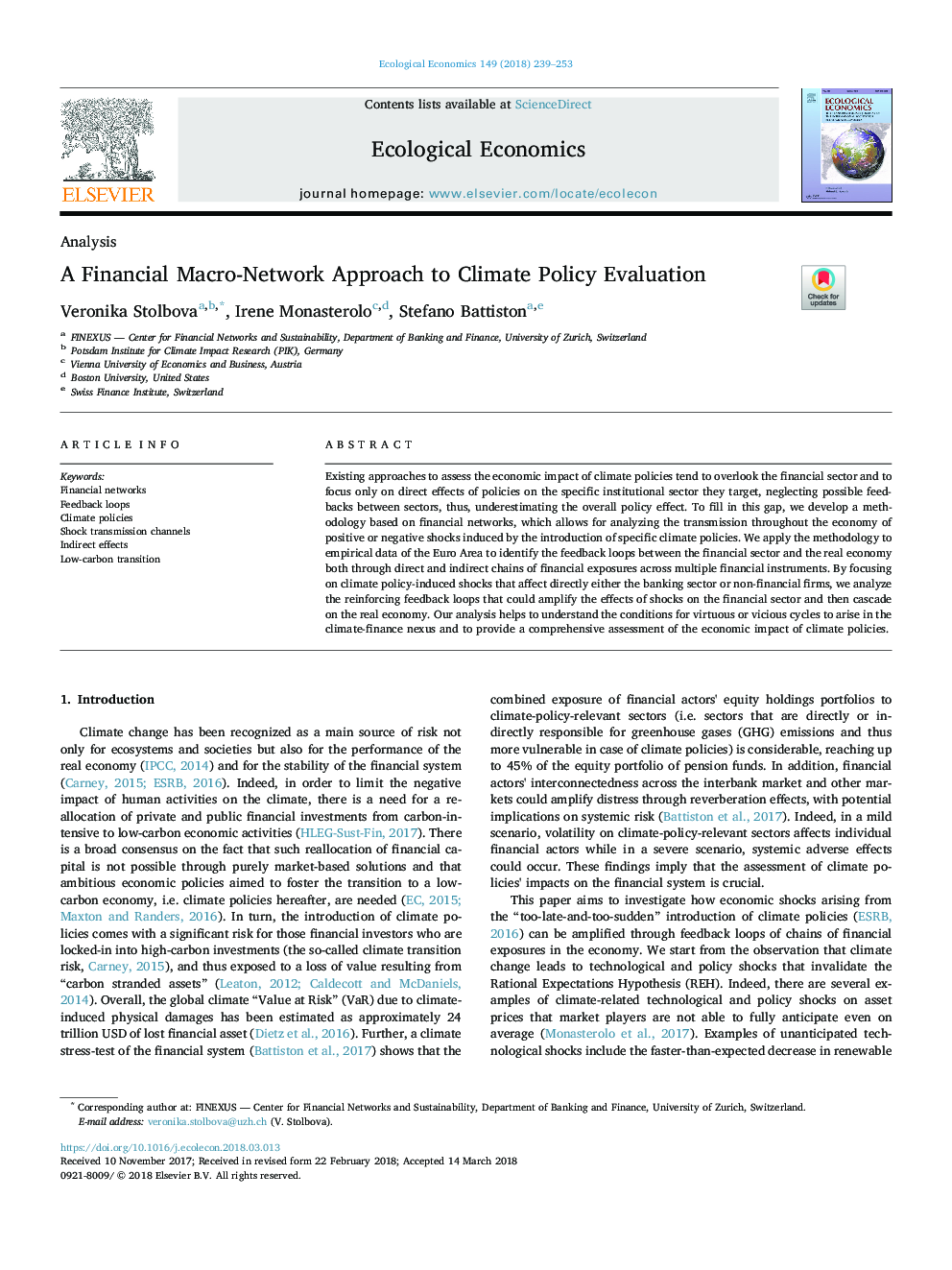| Article ID | Journal | Published Year | Pages | File Type |
|---|---|---|---|---|
| 7344157 | Ecological Economics | 2018 | 15 Pages |
Abstract
Existing approaches to assess the economic impact of climate policies tend to overlook the financial sector and to focus only on direct effects of policies on the specific institutional sector they target, neglecting possible feedbacks between sectors, thus, underestimating the overall policy effect. To fill in this gap, we develop a methodology based on financial networks, which allows for analyzing the transmission throughout the economy of positive or negative shocks induced by the introduction of specific climate policies. We apply the methodology to empirical data of the Euro Area to identify the feedback loops between the financial sector and the real economy both through direct and indirect chains of financial exposures across multiple financial instruments. By focusing on climate policy-induced shocks that affect directly either the banking sector or non-financial firms, we analyze the reinforcing feedback loops that could amplify the effects of shocks on the financial sector and then cascade on the real economy. Our analysis helps to understand the conditions for virtuous or vicious cycles to arise in the climate-finance nexus and to provide a comprehensive assessment of the economic impact of climate policies.
Related Topics
Life Sciences
Agricultural and Biological Sciences
Ecology, Evolution, Behavior and Systematics
Authors
Veronika Stolbova, Irene Monasterolo, Stefano Battiston,
